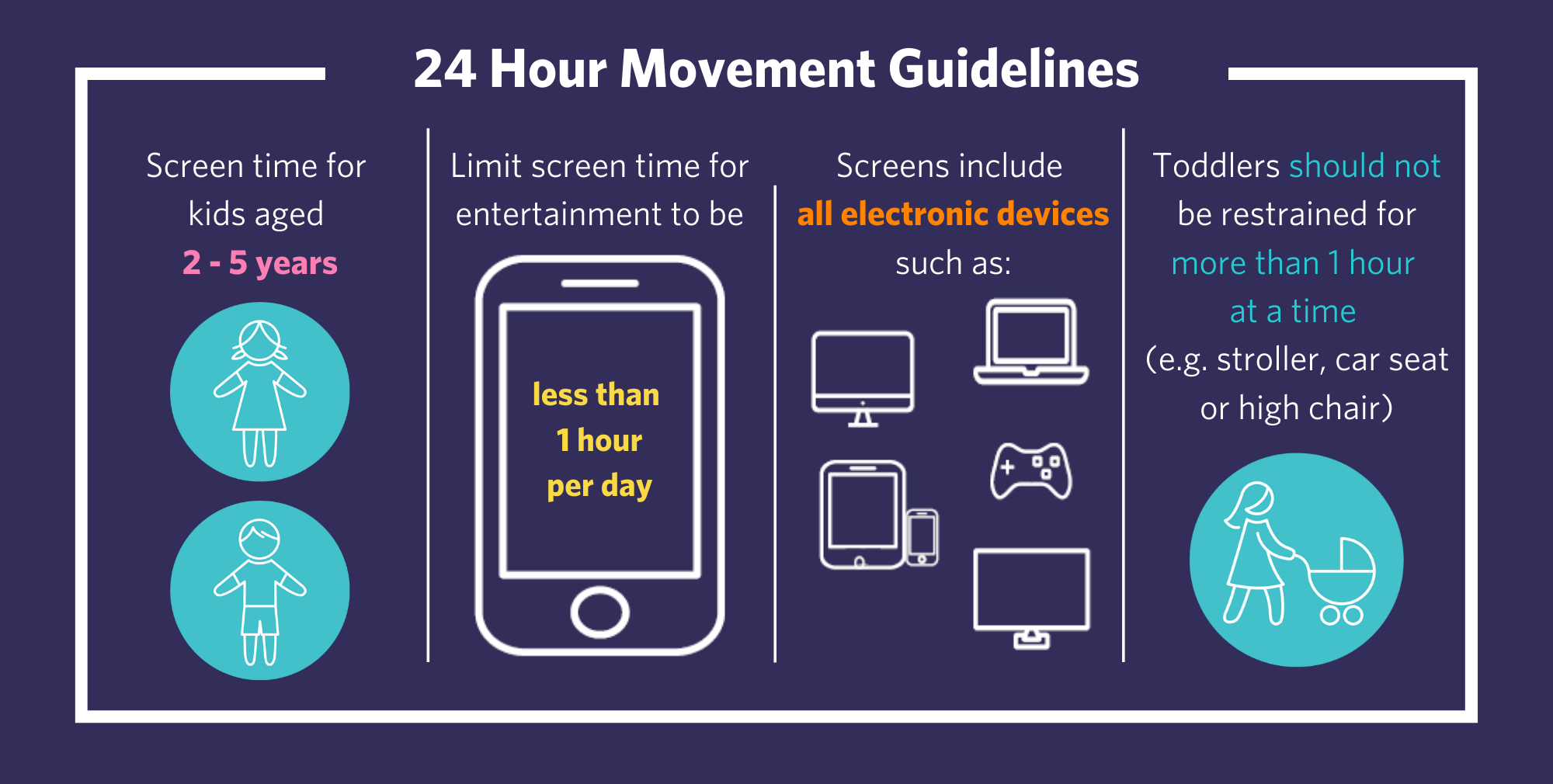
Screen Time for Toddlers
Screen time can be part of a healthy lifestyle for toddlers as long as it is balanced with other activities to help their development. Time spent on screens can be used to encourage learning and promote problem solving or creative play.
How much screen time is too much?
The Australian 24-Hour Movement Guidelines provide recommendations for screen time and sedentary behaviour. Screen time is not recommended for toddlers younger than 2 years. The infographic below outlines the recommendations for toddlers aged 2-5 years.

Too much screen time can have unhealthy side effects such as:
- Slower development of language skills
- Poor social skills
- Difficulties paying attention
- Less active and outdoor play
- Less creative play
Setting some rules can help to manage your toddler’s screen time. Rules could include:
- Where your toddler can use screens. For example, screens can only be used in the lounge room or common room rather than the bedroom or car.
- When your toddler can use screens. For example, no screens during mealtimes or before bedtime.
- How your toddler uses screens. For example, to play an educational game or to guide physical activity rather than to watch movies.
Be a role model
It is important to role model healthy screen time habits as your child will learn from you. Rather than looking at your phone on long car trips or while waiting for an appointment, try games such as ‘I spy’ or talking with your child. It can be tempting to distract your child with screens when out and about, but this doesn’t allow your child the chance to learn how to act in these public situations. You can encourage your child to use their imagination to manage their own boredom. For example, you could encourage them to look at the clouds and imagine what the various shapes could be or encourage them to make up their own silly story.
Alternatives to screen time
Any inactive play time should be an opportunity for your child to learn through quality activities such as reading and puzzles. Whilst there are many apps and games available that use screens to encourage creativity and problem solving, there are many activities that can replace screen time. These include:
- Drawing and painting
- Reading
- Puzzles
- Playing with toys
- Outdoor activities, such as gardening
- Building blocks
- Play dough
For more information
- Screen Time Toolkit, Sydney Children's Health Network - Screen time toolkit
- Munch & Move – Reducing young children’s screen time fact sheet
- Raising Children Network – Screen time: checklist for healthy use
- Department of Health – Australian 24-Hour Movement Guidelines for Early Years (birth to 5 years)
Related Topics

Play is important for building strength and skills. Unstructured play allows your child to us their imagination.

